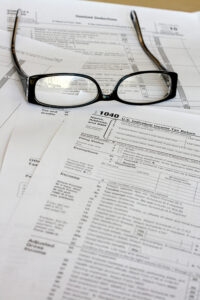We who live here in San Francisco enjoy one of the world’s best climates, a vibrant entrepreneurial scene, restaurants, and… high incomes. The average per capita income in the Bay Area is much, much higher than that of the USA as a whole, and many San Franciscans either have their own business or work for a start up or something else that’s unique and entrepreneurial. With higher incomes and more entrepreneurial activity, we look a bit “interesting,” shall we say to the IRS.
A growing part of our consulting practice is IRS audit defense. In fact, we are becoming known not only as the best boutique CPA firm in San Francisco for international tax issues but the best accounting firm to turn to for IRS audits and defense. Indeed, those two may be intertwined as many San Francisco residents have assets and business interests abroad, and the IRS is clearly stepping up enforcement of overseas tax liabilities.
No One Can Really Predict Who Gets An Audit
While no one can predict who will be audited, here are some ideas about the odds that will increase the probability of an audit. We’re not advising, of course, that you do anything illegal! Rather, the reality, or simple rule of thumb is that the higher your income, the more complex your tax filings, the more likely you are to be subject to an audit. We work with our clients to get their “ducks in a row,” so even if they face an audit, the odds are in their favor that they’ll be well defended. We look at them as friendly tet-a-tets with our pals at the IRS, wherein we show them what we did, why we did it, and why it complied with the law.
Here are some factors that might increase your likelihood of an audit –
- Computer-generated discrepancies. If you are being 1099’d for say, contractor income, and that income isn’t correctly reported, this is a huge trigger of a possible IRS audit. Similarly, if you have investment income that generates 1099’s or similar income disclosures to the IRS by computer (e.g., interest income) AND that’s not correctly reported, it’s pretty simple for their computers to flag you as a possible audit.
- Businesses, especially Schedule C. Any type of business income / activity increases your risk of audit because (let’s face it), many small business people can be rather “creative” with their taxes and bookkeeping. Self-employment is another way to say this one.
- Doing your own taxes. This isn’t necessarily a trigger, but we’ve seen many people who attempt to do their own taxes and end up facing an audit. Why? Well, who knows, but first and foremost, the likelihood that the layman makes an error is a potential trigger. Or, the fact that there isn’t a tax professional standing behind the tax return. Either could be at work, and both are a reason why it’s wise to use a tax professional to file your taxes.
- Large deductions. We advise everyone to take every single dollar in deductions owed them, but higher deductions are one factor that may provoke an audit. Just be ready to defend each and every deduction.
- Obamacare or the Affordable Care Act. The ACA added a new level of complexity to the tax returns, and now everyone has to comply with this government mandate. Any discrepancies here, and you have yet another possible IRS audit trigger.
Photo credit: MoneyBlogNewz via Foter.com / CC BY


